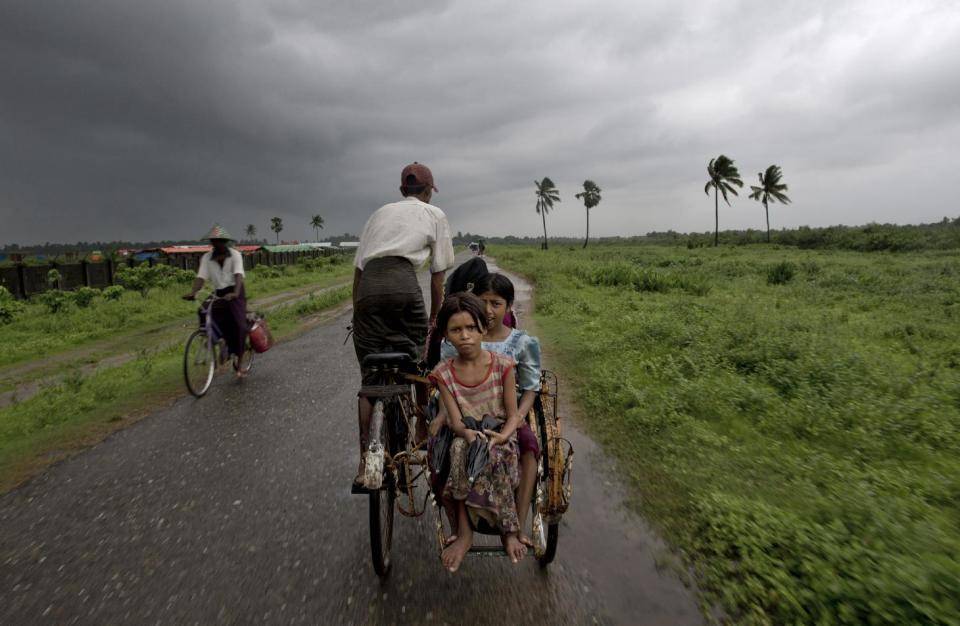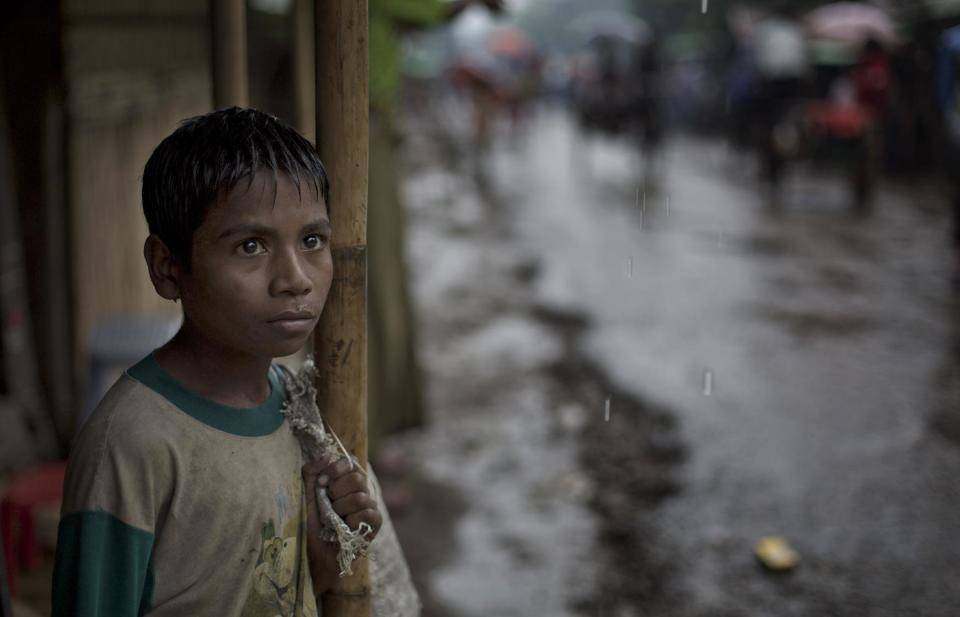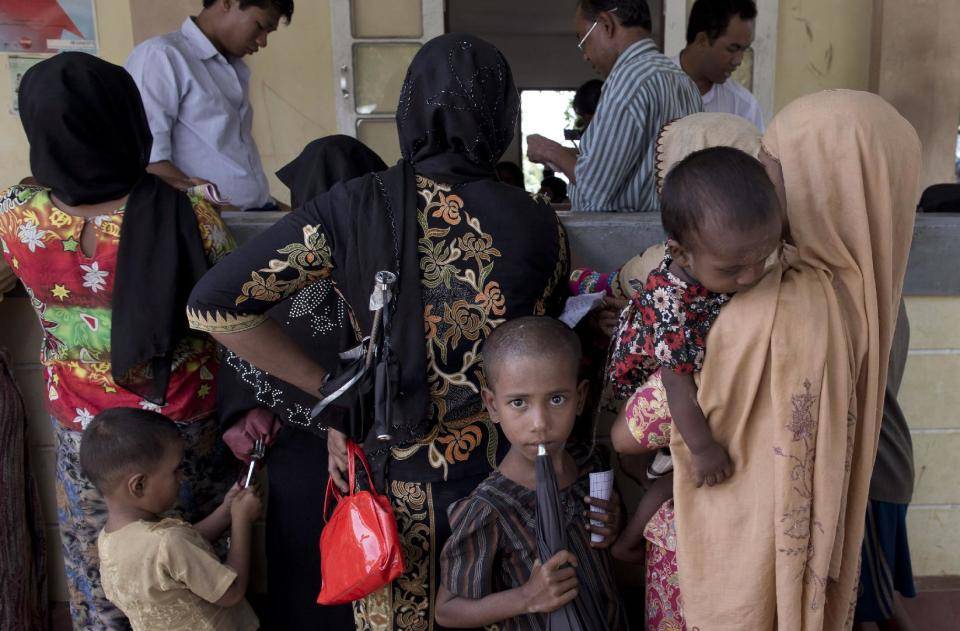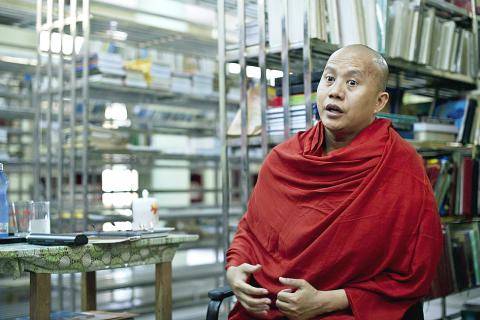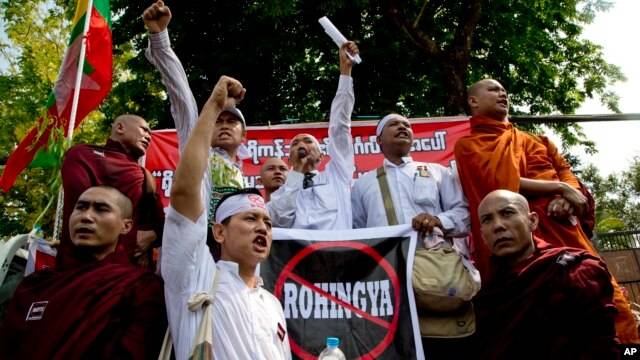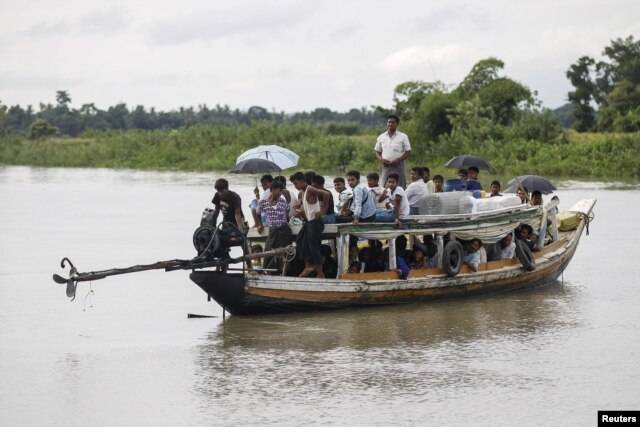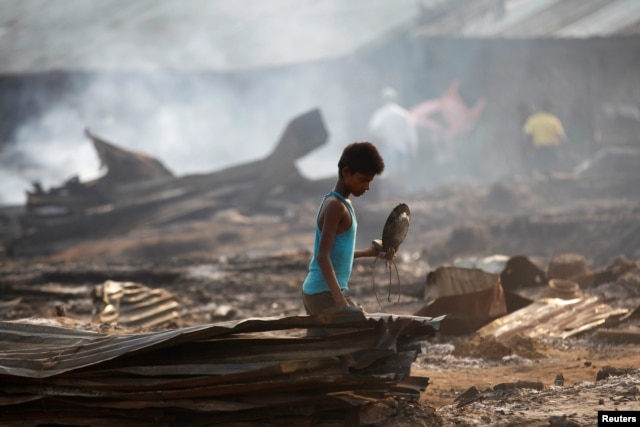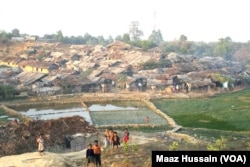Myanmar Rohingya update...
‘Rohingya’ becoming an unspoken word
Tue, Aug 19, 2014 - NO NAME GAME: The UN, the US and others appear to be caving in to pressure from Myanmar’s government not to use ‘Rohingya’ when talking about the besieged Muslims
See also:
Rohingya children in Myanmar camps going hungry
Tue, Aug 12, 2014 - More than 140,000 Rohingya Muslims have been trapped in crowded, dirty camps since extremist Buddhist mobs began chasing them from their homes two years ago, killing up to 280 people
‘Rohingya’ becoming an unspoken word
Tue, Aug 19, 2014 - NO NAME GAME: The UN, the US and others appear to be caving in to pressure from Myanmar’s government not to use ‘Rohingya’ when talking about the besieged Muslims
Myanmar’s downtrodden Rohingya Muslims have been denied citizenship, targeted in deadly sectarian violence and corralled into dirty camps without aid. To heap on the indignity, Myanmar’s government is pressuring foreign officials not to speak the group’s name, and the tactic appears to be working. UN officials say they avoid the term in public to avoid stirring tensions between the country’s Buddhists and Muslims. And after US Secretary of State John Kerry recently met with Burmese leaders, a senior US Department of State official told reporters the US thinks the name issue should be “set aside.”
That disappoints Tun Khin, president of the Burmese Rohingya Organisation UK. He said by not using it, governments are cooperating with a policy of repression. “How will the rights of the Rohingya be protected by people who won’t even use the word `Rohingya’?” he said. Myanmar’s government views the Rohingya as illegal immigrants from Bangladesh, not one of the 135 officially recognized ethnic groups. Longstanding discrimination against the stateless minority, estimated to number 1.3 million, has intensified as Myanmar has opened up after decades of military rule.
More than 140,000 Rohingya have been trapped in crowded camps since extremist mobs from the Buddhist majority began chasing them from their homes two years ago, killing up to 280 people. Some see in the communal violence the warning signs of genocide. The US has called on the government to protect them. When US President Barack Obama visited Myanmar less than two years ago, he told students at Yangon University: “There is no excuse for violence against innocent people. And the Rohingya hold themselves — hold within themselves the same dignity as you do, and I do.”
Yet neither Kerry this month, nor top US human rights envoy Tom Malinowski during a June visit, uttered the term at their news conferences when they talked with concern about the situation in Rakhine state, where sectarian violence is perhaps worst. Buddhist mob attacks against Rohingya and other Muslims have spread from the western state to other parts of the country, sparking fears that nascent democratic reforms could be undermined by growing religious intolerance. The state department official, speaking on condition of anonymity because the official was not authorized to speak publicly, said the US’ position is that to force either community to accept a name that they consider offensive — including the term “Bengali” that the government uses to describe Rohingya — is to “invite conflict.”
MORE
See also:
Rohingya children in Myanmar camps going hungry
Tue, Aug 12, 2014 - More than 140,000 Rohingya Muslims have been trapped in crowded, dirty camps since extremist Buddhist mobs began chasing them from their homes two years ago, killing up to 280 people
Born just over a year ago, Dosmeda Bibi has spent her entire short life confined to a camp for one of the world’s most persecuted religious minorities. And like a growing number of other Muslim Rohingya children who are going hungry, she’s showing the first signs of severe malnutrition. Her stomach is bloated and her skin clings tightly to the bones of her tiny arms and legs. While others her age are sitting or standing, the baby girl cannot flip from her back to her stomach without a gentle nudge from her mom. “I’m scared she won’t live much longer,” whispers Hameda Begum as she gazes into her daughter’s dark, sunken eyes. “We barely have any food. On some days I can only scrape together a few bites of rice for her to eat.”
Myanmar’s child malnutrition rate was already among the region’s highest, but it’s an increasingly familiar sight in the country’s westernmost state of Rakhine, which is home to almost all of the country’s 1.3 million Rohingya Muslims. More than 140,000 have been trapped in crowded, dirty camps since extremist Buddhist mobs began chasing them from their homes two years ago, killing up to 280 people. The others are stuck in villages isolated by systematic discrimination, with restrictions on their movement and limited access to food, clean water, education and health care.
RAMPANT MALNUTRITION
Even before the violence, the European Community Humanitarian Office reported parts of the country’s second-poorest state had acute malnutrition rates hitting 23 percent — far beyond the 15 percent emergency level set by the WHO. With seasonal rains now beating down on the plastic tents and bamboo shacks inside Rohingya camps, the situation has become even more miserable and dangerous for kids like Dosmeda. Naked boys and girls run barefoot on the muddy, narrow pathways, or play in pools of raw sewage, exposing them to potential waterborne diseases that kill. Some have black hair tinged with patches of red or blond, a tell-tale sign of nutrient deficiency commonly seen in places experiencing famine. After a 10-day visit to the area last month, Yanghee Lee, the UN Special Rapporteur on human rights in Myanmar, summed up what she saw. “The situation is deplorable,” she said.
DETERIORATING CONDITIONS
Myanmar, a predominantly Buddhist nation, only recently emerged from a half-century of repressive military rule and self-imposed isolation. Despite occasional expressions of concern, the US, Britain and others in the international community have largely stood by as conditions for the Rohingya deteriorated. Some ambassadors and donor countries say privately that coming down too hard on the new, nominally civilian government will undermine efforts to implement sweeping reforms and note there has already been a dramatic backslide. Others don’t want to jeopardize much-needed multi-billion dollar development projects in the country.
But their hesitancy to act has emboldened Buddhist extremists, now dictating the terms of aid distribution in Rakhine. Last month, even Bertrand Bainvel, country representative for the UN’s children’s agency — which says the number of severe malnutrition cases has more than doubled between March and June to reach nearly 1,000 cases — apologized for the use of the word “Rohingya.” It was uttered during a presentation about projects for kids in Rakhine, rather than the government-insisted term “Bengali.”
MORE


